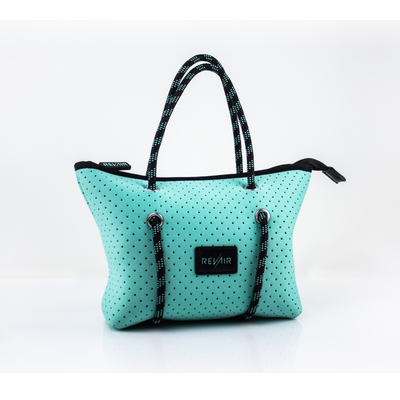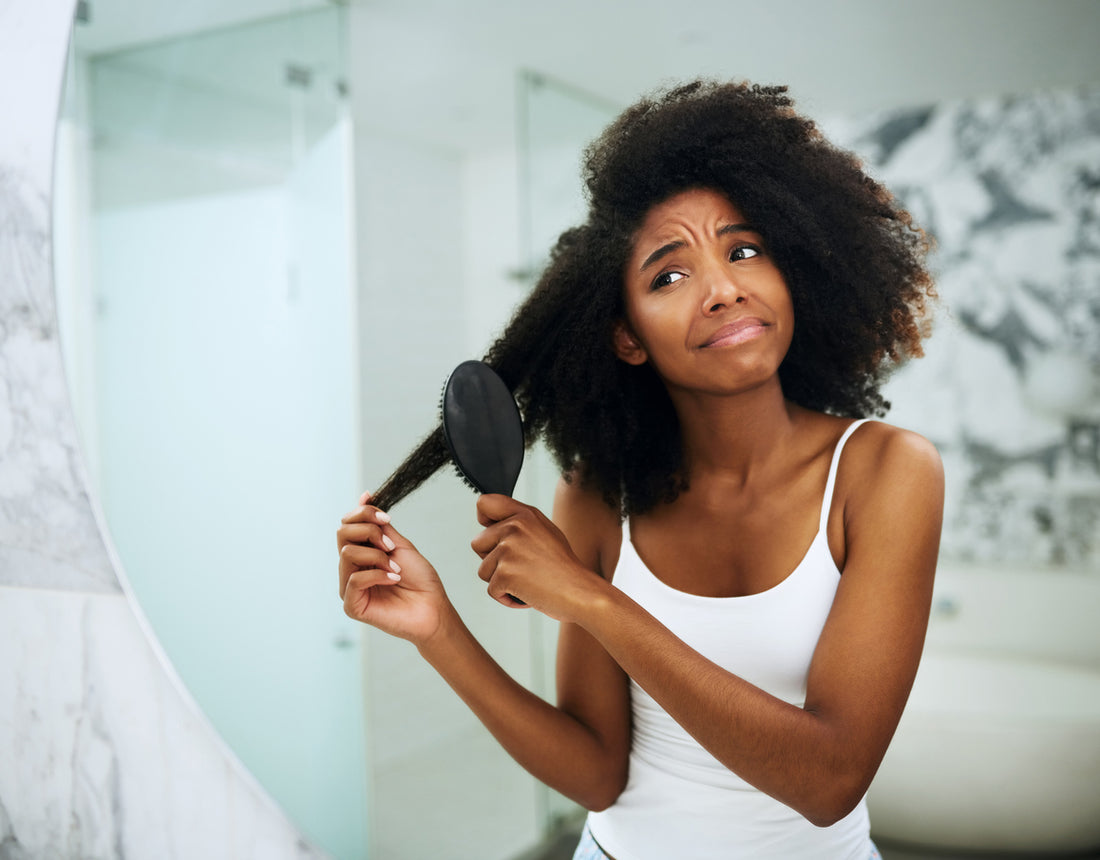
Split Ends, Flyaways & Frizz - Fighting Hair Damage
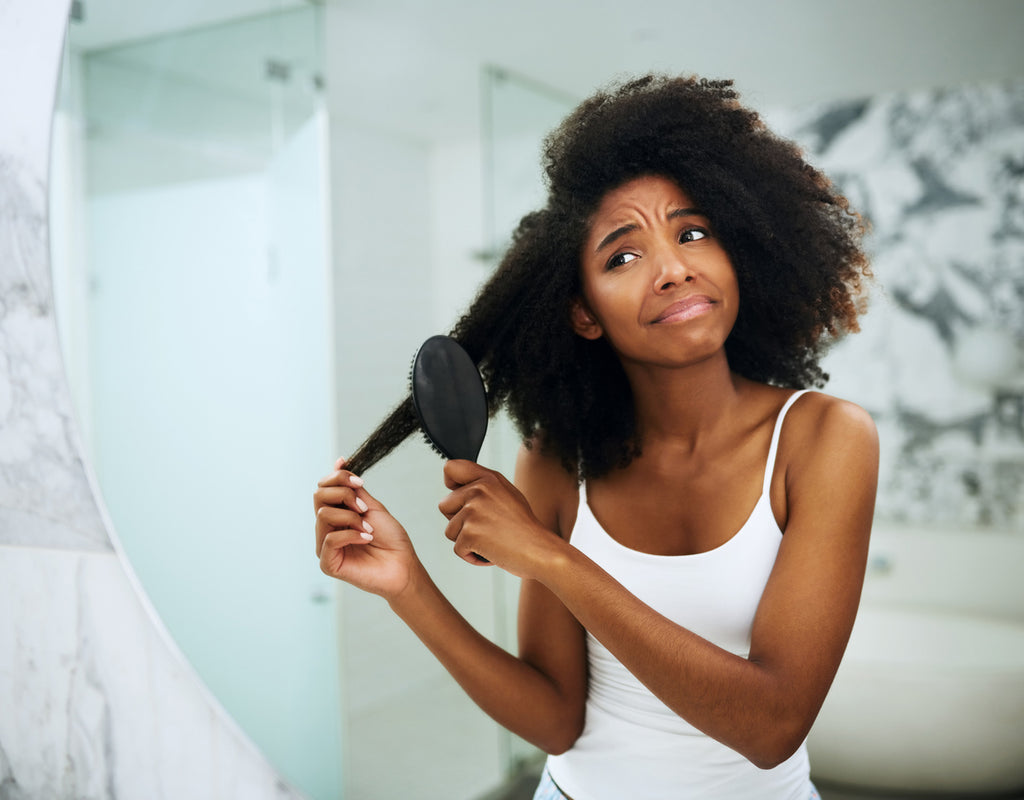
If you've spent time maintaining a perfect hairstyle, only to have it ruined by split ends, flyaways, or frizzy hair, we feel you. In particular, split ends prevent you from achieving that long and luscious hair that many people admire. On the other hand, dealing with frizz and flyaways is also tedious and time-consuming, since most people will repeatedly smooth them down with hairspray. However, this method doesn't seem to bring out the expected results. In this piece, we'll go over the various ways that can help you get rid of split ends, flyaways, and frizzy hair to ensure that you maintain a smooth style. Read on for more insights.
What are Split Ends?
Typically, your hair gets split ends when a single hair strand splits into two. People who constantly pull their hair apart have a high chance of experiencing this problem. Although split ends mainly occur at the hair ends, it's also possible to have this type of hair damage occurring at any point on the hair strand.
However, note that having split ends is still normal, but large amounts should raise red flags. Having many split ends indicates that your hair is dry, unhealthy, damaged, and will be aesthetically undesirable. The problem escalates rapidly with a lack of proper hair care and can lead to hair breakage on all your hair strands.

What Causes Split Ends?
Although extreme damage to your hair leads to rapid split ends, this damage will mainly develop slowly. Below are some of the common causes of degradation and damage to the ends of your hair cuticles.
- Weather: While you may not know it, environmental aggressors such as humid climates, exposure to heat, cold, and wind takes a toll on your hair. If you constantly style your hair in puffs, afros, or wash 'n gos, there may be more exposure to the environment, making your hair susceptible to split ends.
- Physical damage and manipulation: Everyday stressors like brushing out your entangled hair, taking a hot shower, sleeping with hair tied back, and putting your hair to dry in a towel can all lead to split ends. If you've adapted to some of these habits as part of your grooming routine, you are causing more harm to your hair unknowingly. You'll also need to reduce the frequent use of hot styling tools such as hot rollers, curling irons, and straighteners, as they make your hair more susceptible to splitting.
- Bad nutrition: The phrase, 'You are what you eat' also translates to your hair's health. Vitamin deficiency, dehydration, protein deficiency, and inadequate diet make your hair highly susceptible to split ends.
How to Get Rid of Split Ends
If you already have split ends, here are some ways to get rid of them.
Trim Them Off
This solution may seem a bit harsh but trimming split ends is the natural cure. In fact, getting regular trims will help you grow faster and stronger hair. While this may seem counterintuitive, failure to cut split ends leads to continuous breakage.
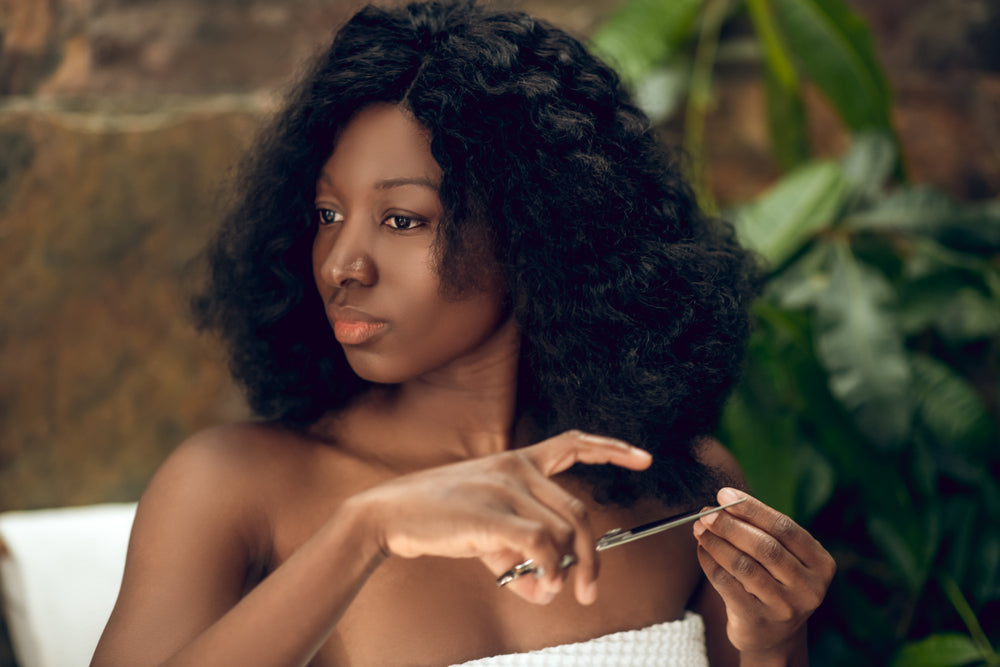
Hide Them Using Hair Extensions
If you want an additional hair length or boost your hair game to make it look healthier, you can opt for hair extensions. This will help in concealing those split ends. Although your hair is relatively healthy since it lacks the desired length and thickness, hair extensions will give it a next-level appearance. You could also do this using braids and real or synthetic hair to emulate a fuller and longer braid.
What are Flyaways?
As the name suggests, flyaways are little hair bits that tend to fly away and can be mistaken for frizz. Flyaway hair has a bad feeling on your head and makes you want to reach a pair of scissors or spritz a ton of hairspray all over your hair. However, attempting to remove these flyaways may lead to stiff hair. While it's possible to get flyaways in all hair types, straight hair is more prone to this kind of damage.
What Causes Flyaway Hair?
There are several reasons why you may have flyaway hair. In most cases, product build-up is a significant cause of this problem. If you don't take your time to thoroughly clean and moisturize your hair, it may be the primary cause of flyaways. Cleaning and moisturizing your hair gives it a smooth appearance and also has a weighed-down feeling on your locks. You might also get flyaways from dry hair strands, hair breakage, chemical damage, humidity, static, or even split ends.
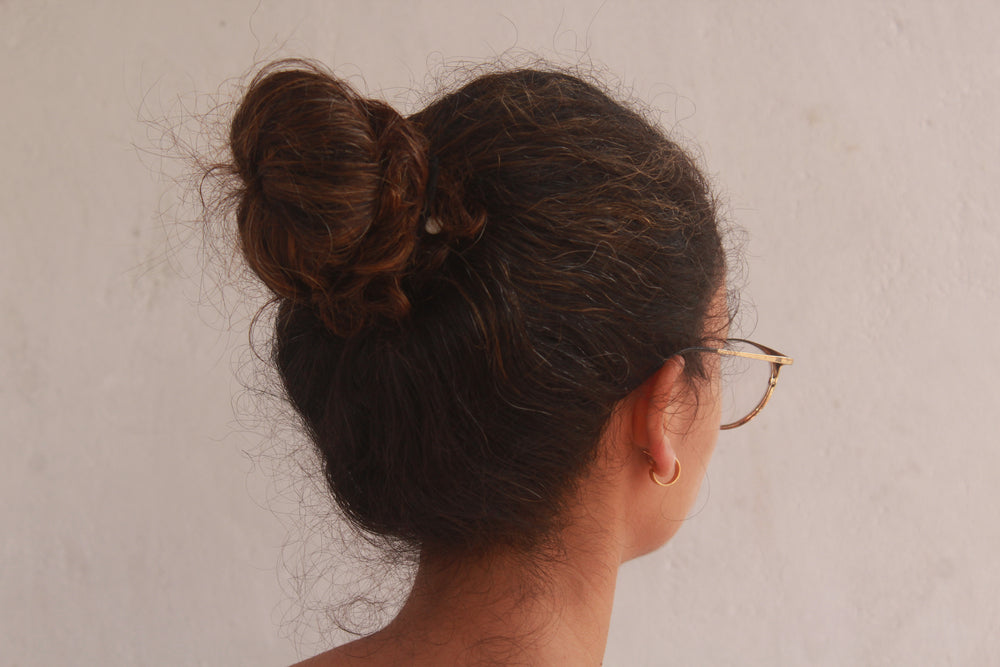
How Do You Fix Flyaway Hair?
There are many ways you can implement to get rid of flyaway hair, as discussed below.
Get a Trim
Again, flyaway hair can result from various factors, including split ends, dryness, or breakage. Getting regular hair trims can be a great way to keep flyaways at bay. Note that you don't have to undergo an entire hair trim or anything crazy. You only need a regular trim that will maintain your style. This tactic also helps keep your hair in place instead of having hair sticking out.
Find a Great Shampoo and Conditioner
Start fixing your flyaway hair at the initial hair care routine procedures. Since this type of hair damage is closely related to hair dryness issues, moisturizing hair care products would be of great help. These products assist in conditioning your hair while keeping your hair smooth and gently cleanse it while providing luminosity, frizz control, and humidity protection.
Avoid Drying Your Hair Using Regular Towel
Note that having flyaway hair means that your hair is weak, and when it's wet, it becomes more fragile. Consequently, using a regular towel to dry this type of hair can damage the strands. Most regular towels have thicker fibers, so they will be rough on your hair strands, leading to more flyaways. Opt for a microfiber option to minimize hair damage when drying your hair.
Skip the Brush on Dry Hair
Although this solution may sound odd, brushing dry hair strands can lead to flyaways, especially for people with curly hair. Try combing your hair while it's still damp. This way, you will get rid of tangles and knots without creating frizz. While at it, start by detangling the tip and slowly work your way up to the roots.
What is Frizzy Hair?
Frizzy hair is where you have different hair fibers running in multiple directions, resulting in a rough feeling. You will mostly have a dry and frizzy hair appearance instead of that smooth and defined look. A considerable number of people suffer from frizzy hair, and taming it is a frustrating experience.
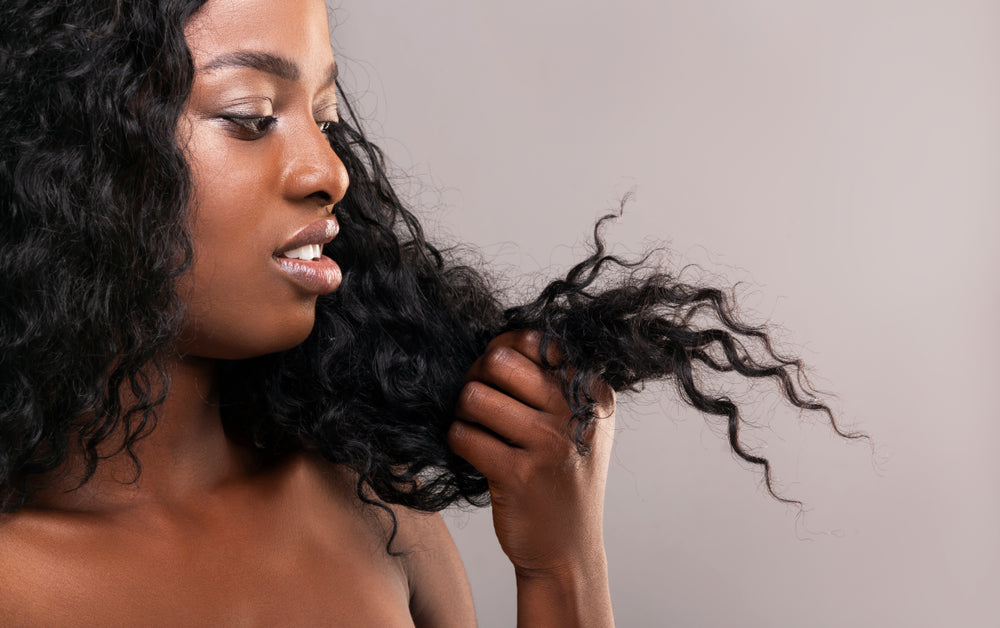
What Causes Frizzy Hair?
This type of hair damage happens when moisture passes through a raised cuticle layer leading to swelling of the hair strand. Naturally, when you have healthy hair, your hair cuticles will lift, though temporarily, for grease and grime to penetrate, then things like hair oils and conditioners help seal it back and lock in the nutrients. If there is damage to the cuticle, frizz can quickly develop. Most people experience this type of hair damage during summer when the hair is dry and lacks moisture.
Also, when the environment is humid, there are higher chances of getting frizzy hair. When hair fibers have more moisture, hydrophobic bonds tend to break, increasing the possibility of a frizz. Also, people with curly hair are more prone to frizzy hair since it's harder to align the hair fibers.
How to Control Frizzy Hair
You can easily control frizzy hair by using the right product ingredients. Still, several other options are effective solutions no matter that kind of hair you may have, as outlined below.
Put More Focus on Moisture
One excellent remedy that works for curly hair is moisturizing it. Start the process by using a conditioner and hydrating hair shampoo in the shower. Also, detangle thoroughly with a conditioner that adds more moisture to your hair.
Detangle Carefully
If you fail to detangle your hair correctly, it will lead to breakage and interfere with your hair cuticle's direction. Therefore, go for a wide-tooth comb while detangling your hair. Carefully work your way through the knots, starting from the bottom to the root section.
Avoid Brushing
There is no problem with brushing your hair, but it makes your curly hair worse. Also, depending on the brush you use, it could lead to unnecessary friction on the hair strands, raising the cuticle, or even breaking it if done too roughly. If you have curly hair, use a natural bristle brush and refrain from brushing wet hair because it's more fragile.

Cover Your Hair at Night
You may not know it, but lots of hair damage can happen while sleeping. When rolling, the friction can cause breakage and suck the moisture from your hair, leading to curly hair. There is no specific method to cover your hair; make sure you don't sleep on frizzy hair.
Try RevAir for the Best Hair Care
We know that you would always love to get that smooth hair worthy of a shampoo ad. If you have any of these three hair damage issues, don't stress. You can try any of the above methods to fix the issue and get that desirable hair that will always stand out.
If you have any more hair-related questions, RevAir has got your back. Feel free to reach out to us today.




